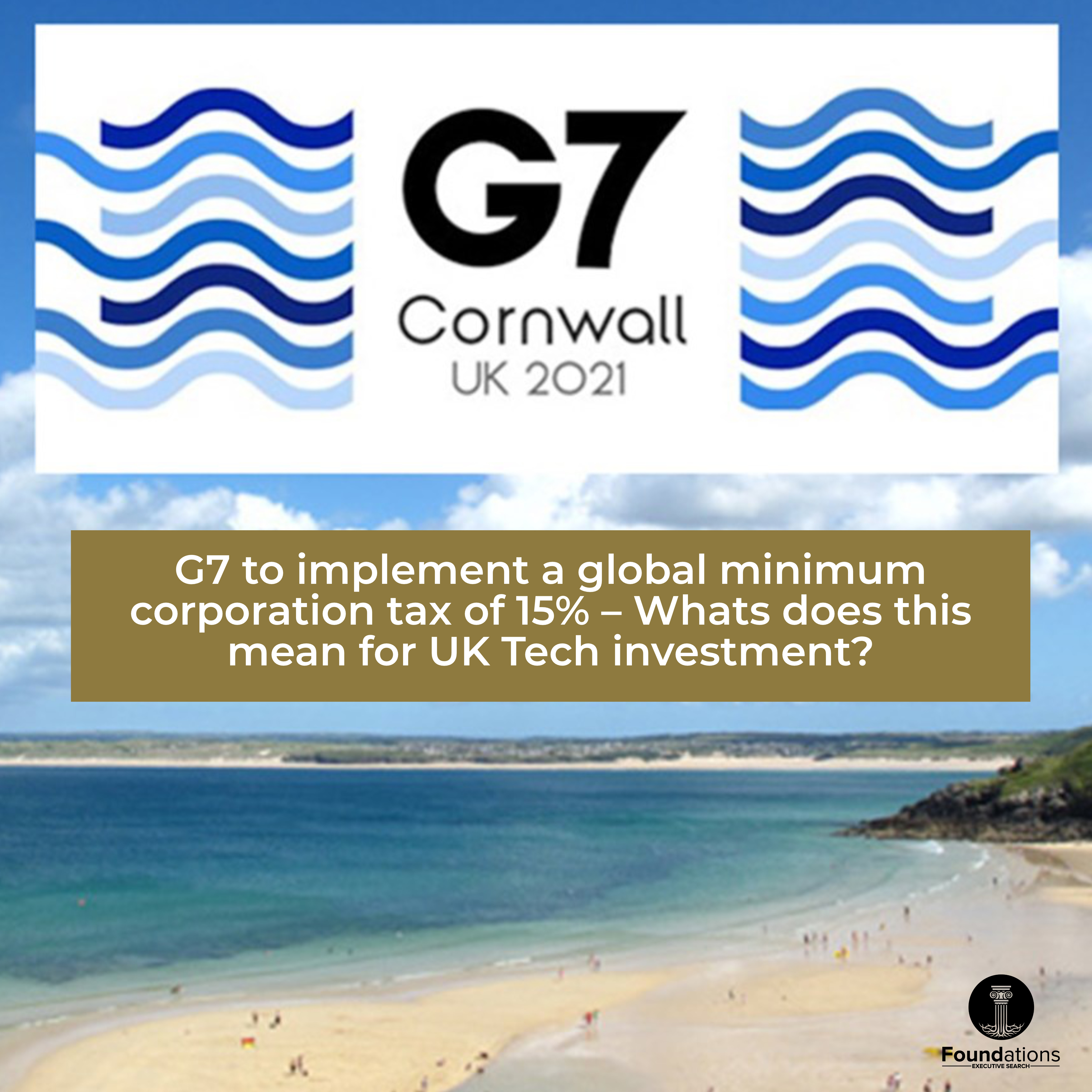Contact Us
Foundations Executive Search,
86-90 Paul St,
London, EC2A 4NE
+44 (0) 208 167 37 37
DEI Policy
Sustainability Policy
Privacy & GDPR

Last week saw one of possibly the biggest international collaborations regarding big tech regulation in decades. With the agreement between the G7 to implement a global minimum corporation tax of 15% taking the headlines, possibly the more important and effective changes to the international tax system will be how the tax will be paid – linked to the location of sales rather than just where the corporations are headquartered. This is especially focused on businesses with a large online presence.
Although the likes of Facebook and Google have openly welcomed this, it will undoubtedly lead to a dramatic increase in the amount of tax they pay and benefit more countries where they operate.
But… What does this mean for the UK and for Mr Sunak’s recently announced plans to boost investment into the UK through Free Trade Zones and Super Deductions? Are they now dead in the water?
I guess we will have to wait and see, but I think the government will need to readdress their plans and expand on how they aim to make the UK more enticing to big business. This isn’t to say that the new G7 agreement is bad for the UK – Quite the opposite – It will undoubtedly bring in more tax to the UK, and it is my opinion that with the UK being an international hub for innovation within the tech, science, and finance industries, the UK will hold a greater appeal to companies with tax incentives elsewhere no longer offering the billions in tax cuts currently offered.
While many have said that the minimum rate of 15% is too low (and in reality, it is only marginally higher than that of many tax havens like Ireland and Singapore), the most important aspects – like how this will be implemented and ensuring current tax strategies and loopholes can’t be used by big business to further mitigate their tax liabilities.
Not only will this help to create a fairer tax system and bring in additional tax revenue – that no doubt after the cost of Covid governments will be very happy to see, but it will hopefully level the playing field between big tech and their smaller upcoming competitors.
Of course, there is still a long way to go in the implementation of this, more countries have to sign up and the finer details of the agreement need to be ironed out, with the next steps bringing the deal to the G20, whose finance ministers will be meeting in Venice next month and then 135 nations will have their say at the Organisation for Economic Co-operation and Development meeting later this year.
So, this is just the first step and the final global agreement may end up looking very different once other parties have had their input, but if a consensus can be reached, we could see the reforms starting to come in next year.
What are your thoughts on the proposed agreement and how can you see it affecting your business and the UK tech industry?
For more latest insights from Foundations Executive Search and information
on how we can help you find the industry’s most talented candidates see more of our Latest Insights, or Contact Us directly.